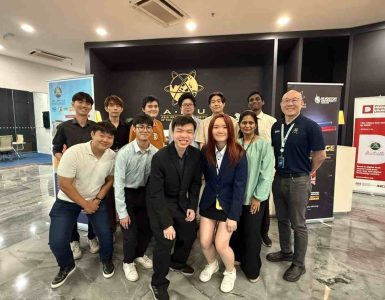How do you parent without a net, without a future, knowing that you will lose your child, bit by torturous bit?
Depressing? Sure. But not without wisdom, not without a profound understanding of the human experience or without hard-won lessons, forged through grief and helplessness and deeply committed love about how to be not only a mother or a father – but how to be human.
Parenting advice is, by its nature, future-directed. I know. I read all the parenting magazines. During my pregnancy, I devoured every parenting guide I could find. My husband and I thought about a lot of questions they raised: Will breastfeeding enhance his brain function? Will music class improve his cognitive skills? Will the right pre-school help him get into the right college? I made lists. I planned and plotted and hoped. Future, future, future.
We never thought about how we might parent a child for whom there is no future.
Our parenting plans, our lists, the advice I read before Ronan’s birth make little sense now. No matter what we do for Ronan – choose organic or non-organic food; cloth diapers or disposable; attachment parenting or sleep training – he will die. All the decisions that once mattered so much, don’t.
All parents want their children to prosper, to matter. We enrol our children in music class or take them to Mummy and Me swim class because we hope they will manifest some fabulous talent that will set them – and therefore us, the proud parents – apart.
Traditional parenting naturally presumes a future where the child outlives the parent and ideally becomes successful, perhaps even achieves something spectacular. Amy Chua’s Battle Hymn of the Tiger Mother is only the latest handbook for parents hoping to guide their children along this path.
But I have abandoned the future and, with it, any visions of Ronan’s scoring a perfect SAT or sprinting across a stage with a Harvard diploma in his hand. We’re not waiting for Ronan to make us proud. We don’t expect future returns on our investment. We’ve chucked the graphs of developmental milestones and we avoid parenting magazines at the paediatrician’s office.
Ronan has given us a terrible freedom from expectations, a magical world where there are no goals, no prizes to win, no outcomes to monitor, discuss, compare.
But the day-to-day is often peaceful, even blissful. This was my day with my son: Cuddling, feedings, naps. He can watch television if he wants to; he can have pudding and cheesecake for every meal. We are a very permissive household. We do our best for our kid, feed him fresh food, brush his teeth, make sure he’s clean and warm and well rested and … healthy?
Well, no. The only task here is to love and we tell him we love him, not caring that he doesn’t understand the words. We encourage him to do what he can, though, unlike us, he is without ego or ambition.
Ronan won’t prosper or succeed in the way we have come to understand this term in our culture; he will never walk or say “Mama” and I will never be a tiger mum. The mothers and fathers of terminally ill children are something else entirely.
Our goals are simple and terrible: To help our children live with minimal discomfort and maximum dignity. We will not launch our children into a bright and promising future but see them into early graves. We will prepare to lose them and then, impossibly, to live on after that gutting loss.
This requires a new ferocity, a new way of thinking, a new animal. We are dragon parents: Fierce and loyal and loving as hell. Our experiences have taught us how to parent for the here and now, for the sake of parenting, for the humanity implicit in the act itself, though this runs counter to traditional wisdom and advice.
Nobody asks dragon parents for advice; we’re too scary. Our grief is primal and unwieldy and embarrassing. The certainties that most parents face are irrelevant to us, and frankly, kind of silly. Our narratives are grisly, the stakes impossibly high. Conversations about which seizure medication is most effective or how to feed children who have trouble swallowing are tantamount to breathing fire at a dinner party or on the playground.
And there’s this: Parents who, particularly in this country, are expected to be superhuman, to raise children who outpace all their peers, don’t want to see what we see. The long truth about their children, about themselves: That none of it is forever.
Ronan is fading but our day-to-day experience with him is often peaceful, even blissful: Cuddling, feedings, books, walks, naps. We brush his teeth to keep them from rotting even though he will never use them to chew solid food. It doesn’t always feel like enough.
I would walk through a tunnel of fire if it would save my son. I would take my chances on a stripped battlefield with a sling and a rock à la David and Goliath if it would make a difference. But it won’t. I can roar all I want about the unfairness of this ridiculous disease but the facts remain. What I can do is protect my son from as much pain as possible, and then finally do the hardest thing of all, a thing most parents will thankfully never have to do: I will love him to the end of his life, and then I will let him go.
But today Ronan is alive and his breath smells like sweet rice. I can see my reflection in his greenish-gold eyes. I am a reflection of him and not the other way around, and this is, I believe, as it should be. This is a love story and, like all great love stories, it is a story of loss. Parenting, I’ve come to understand, is about loving my child today. Now. In fact, for any parent, anywhere, that’s all there is.
– Today Online –
Emily Rapp is the author of Poster Child: A Memoir and a professor of creative writing at the Santa Fe University of Art and Design.












